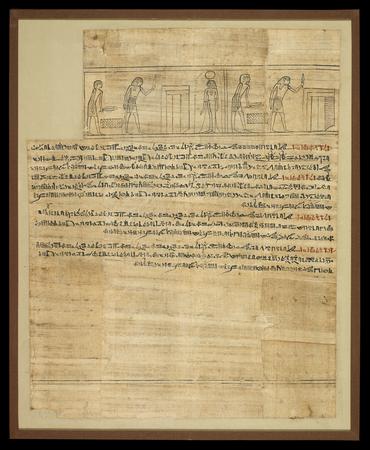

Seqenenre Taa died in May 1533 BCE, after 11 years of reign, in dramatic and unclear circumstances. The eldest son of Seqenenre Taa, Ahmose Sapaïr, who was crown prince died in a dramatic and unexplained way shortly before his father. According to Egyptian accounts the last king of the XVth dynasty, named Apopi, “very pretty” in Hebrew that is Moses’ birth name (Ex 2:2), reigned 40 years in Egypt from 1613 to 1573 BCE, then 40 years later he met Seqenenre Taa the last pharaoh of the XVIIth dynasty and gave him an unspecified disturbing message.

Ironically, if one considers that “truth” must be based on two pillars: an accurate chronology anchored on absolute dates (Herodotus’ principle) and reliable documents coming from critical editions (Thucydides’ principle), that implies an amazing conclusion: those who believe Egyptologists are actually the real gullible ones. However, according to most Egyptologists, there is absolutely no evidence of Moses and the Exodus in Egyptian documents, which leads them to conclude that the whole biblical story is a myth written for gullible people. To be or not to be is a crucial question regarding Moses as well as the Exodus because, according to the Bible, the character related to that famous event forms the basis of the Passover which meant the Promised Land for Jews and later the Paradise for Christians. What are the Egyptian documents underlying this hypothesis: none, and what is the chronology of this mysterious war: nobody knows! Consequently, who to believe: Moses or Egyptologists? GLASSTREE 2017


Finally, Ahmose I, the first pharaoh of the 18th Dynasty of Egypt, won the war against the Hyksos. For them, “it seems” that several campaigns against the stronghold at Avaris were needed, during at least one decade, before the Hyksos were finally dislodged and driven from Lower Egypt. For these scholars the liberation from Egypt after the “10 plagues”, as it is written in the Book of Exodus, is quite different from the historical “war of liberation against the Hyksos”. Several scholars (Finkelstein, Dever and others) posit that the Exodus narrative may have developed from collective memories of the Hyksos expulsions of Semitic Canaanites from Egypt, possibly elaborated on to encourage resistance to the 7th century domination of Judah by Egypt. The Ipuwer papyrus therefore supports a divergence of several hundred years between the biblical and secular timelines at the time of the Exodus.įor Egyptologists as well as archaeologists, and even now Bible scholars, the answer to the question: Who to believe: Moses or Egyptologists? is obvious (Dever: 2003, 233): Rather than attempt to defend the factual historicity of the Exodus traditions, I suggest that we must understand the Exodus story precisely as a myth, specifically as a “metaphor for liberation” (.) There is ample evidence that the Exodus story was read metaphorically already in ancient times, certainly so by the early rabbis and by later rabbinical commentaries. Often secular scholars declare that biblical events like the Exodus cannot have taken place because there are no evidences of these at the time in history where the Bible places them. The question of divergence of the secular and biblical timelines is a matter of enormous importance for biblical apologetics. This puts the manuscript’s original date (as determined by scholars) exactly where it should be. With respect to dating the events in this papyrus, it needs to be understood that the secular historical timeline diverges from the biblical timeline, and furthermore, that the Old Kingdom and the Middle Kingdom of Egypt ended at the same time (contrary to the standard history). In this paper we show that this ancient document most likely describes Exodus conditions and that the Ipuwer Papyrus therefore offers strong extra-biblical evidence for a historical Exodus. On the other side are those who deny this on the basis of disbelief that the Exodus ever took place, or who claim that the date of the events described in the manuscript is wrong for the Exodus. On the one side are those who claim that this manuscript describes chaotic conditions in Egypt at the time of the biblical Exodus. Controversy surrounds the Ipuwer Papyrus, an Egyptian manuscript residing in the Dutch National Museum of Antiquities in Leiden, Netherlands.


 0 kommentar(er)
0 kommentar(er)
